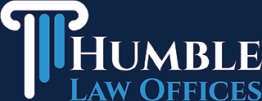Home > Bankruptcy Learning Center > Pros and Cons of Filing for Bankruptcy
Pros and Cons of Bankruptcy
The Advantages and Disadvantages
Bankruptcy is the most powerful option for serious debt problems. Like any solution to a serious problem, there are always pros and cons to consider.
Advantages of Filing for Bankruptcy
One advantage of filing for bankruptcy is that you don’t pay back your debt, or at least you don’t repay most of it. Things you want to pay, and keep, are easier to pay and keep current once you wipe out all the other debts.
Most people do not lose their car or home when filing for bankruptcy, but unsecured debts like credit cards and medical bills are either not paid at all or they are only paid a small amount.
When you file for bankruptcy, Creditors no longer call you for payments; they must stop calling you. Creditors also cannot sue you nor can they garnish your wages. This is due to the automatic stay, which occurs the instant you file bankruptcy.
After you file bankruptcy and discharge your debts, creditors have to report zero balances on your credit report. This instantly improves your debt to income ratio, and it’s easier to get credit after bankruptcy.
Disadvantages of Filing for Bankruptcy
Bankruptcy will remain on your credit report for 7 to 10 years. Filing bankruptcy will lower your credit score, but not for a long time. Many people find that they actually have higher credit scores within a relatively short time by taking proper steps to rebuild credit.
You can recover your credit quickly and completely so that even if the bankruptcy is still on your credit report, it will not affect you. The key is what you do after you file bankruptcy to raise your score.
You will lose your credit cards after you file bankruptcy. In most cases, when you file bankruptcy your credit cards will be closed. This does not in all cases, but should be expected. You are not permitted to “pick and choose” which creditors you list when you file bankruptcy. You must list them all.
Bankruptcy will not eliminate all of your debts. Student loans, child support and most taxes are not discharged in bankruptcy. However, eliminating your other debts will make it possible for you to pay these debts after bankruptcy.
Loans may be harder to get after bankruptcy. Difficulty in getting loans depends on what you do AFTER you file bankruptcy. If you take the proper steps to recovery your credit, it’s possible to get a mortgage loan at a good rate in as little as 2 years.
If you’re considering the pros and cons of filing bankruptcy, it’s best to talk with someone who is trained and certified in all areas of bankruptcy. Attorney Scott Humble has decades of experience in all bankruptcy and financial recovery matters. He’ll make sure you know what to do and what NOT to do.
Next Article: Qualifying for Bankruptcy
Client Reviews
“Best local attorney around. I strongly suggest and approve of Mr. Humble.”

Sarah Johnson
Client
“Scott Humble Esq. is helpful and successful. I would strongly suggest him to anyone.”

Sarah
Client
“Great Customer Service! Always Taken Care of! Friendly and Professional!”

Brooke B.
Client
Schedule a Free Bankruptcy Consultation
100% Confidential
HUMBLE LAW OFFICES
Contact Us
CONTACT
Fax: 716-664–2329
HOURS
Sat-Sun: Closed
Serving Jamestown, NY – Chautauqua County – Cattaraugus County – Southern Tier – Warren County – Erie, PA and throughout the area.
